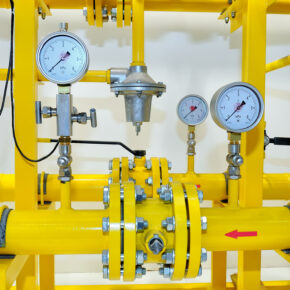
Posted on: 05. 22. 24
Compressed natural gas (CNG) has emerged as a compelling alternative fuel source, sparking both curiosity and debate. As the world seeks sustainable energy solutions, understanding the truth about CNG becomes crucial. This comprehensive guide delves into the nuances of CNG, exploring its benefits, drawbacks, and potential impact on the future of fuel.
What is Compressed Natural Gas?
CNG is simply natural gas—primarily methane—that has been compressed to less than 1% of its volume at standard atmospheric pressure. This compression allows for efficient storage and transportation, making CNG a viable fuel option for vehicles and other applications.
Advantages of Compressed Natural Gas
Compressed natural gas boasts several advantages that contribute to its growing popularity. Firstly, it is a cleaner-burning fuel compared to gasoline and diesel, producing fewer harmful emissions. This environmental benefit makes CNG an attractive option for those seeking to reduce their carbon footprint.
CNG is often more affordable than traditional fuels, leading to significant cost savings for consumers and businesses alike. This economic advantage is particularly appealing in regions with abundant natural gas resources.
Finally, CNG vehicles tend to have lower maintenance costs than their gasoline or diesel counterparts. The simpler engine design and reduced wear and tear associated with CNG combustion contribute to this cost-effectiveness.
Addressing the Challenges of CNG
Despite its numerous benefits, CNG faces certain challenges that warrant consideration. One primary concern is the limited availability of CNG refueling stations. Unlike gasoline, CNG infrastructure is not as widespread, which can pose challenges for long-distance travel and limit the convenience of CNG vehicles.
The process of converting existing vehicles to run on CNG can also be expensive. While new CNG vehicles are becoming more readily available, retrofitting older models may not always be a cost-effective solution.
Concerns have been raised about the environmental impact of natural gas extraction and production. While CNG burns cleaner than traditional fuels, the overall lifecycle emissions of natural gas can be significant, depending on the extraction methods employed.
The Future of CNG
The future of CNG remains a topic of ongoing discussion and development. As technology advances, the efficiency and availability of CNG infrastructure are likely to improve. Furthermore, research into renewable natural gas (RNG), derived from organic waste, offers the potential to further reduce the environmental impact of CNG.
The role of government incentives and policies will also play a significant role in shaping the future of CNG. Supportive regulations and investment in infrastructure can accelerate the adoption of CNG and contribute to a more sustainable transportation landscape.
CNG and Pro-Gas LLC | A Commitment to Innovation
The truth about compressed natural gas is multifaceted. It presents a viable alternative fuel source with notable environmental and economic advantages. However, challenges remain in terms of infrastructure development and the environmental impact of natural gas production.
As technology advances and the demand for cleaner energy grows, CNG is poised to play an increasingly important role in the global energy landscape. Companies like Pro-Gas LLC are leading the charge, driving innovation and promoting the responsible use of CNG for a brighter future.
Pro-Gas LLC, a leading provider of CNG solutions, is committed to driving innovation and expanding the accessibility of CNG. With a focus on cutting-edge technology and customer-centric solutions, Pro-Gas LLC is at the forefront of the CNG revolution. Through strategic partnerships and a dedication to environmental stewardship, Pro-Gas LLC is paving the way for a cleaner and more sustainable energy future.
Ready to explore the potential of CNG for your business or fleet? Discover how CNG can fuel your success while reducing your environmental impact — contact Pro-Gas LLC today!


